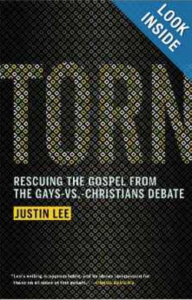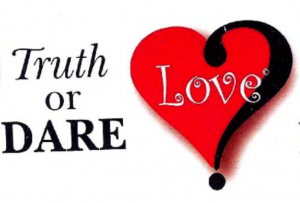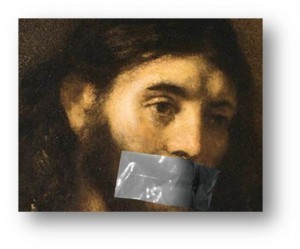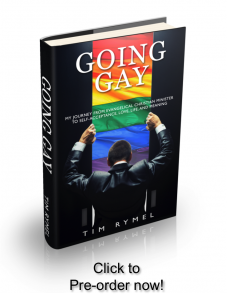Tim Rymel's Blog, page 22
June 7, 2014
Book Review – Torn: Rescuing the Gospel from the Gays-vs.-Christians Debate
 I’m a little embarrassed to admit that it took me so long to finally read Justin Lee’s book. Quite honestly, I wasn’t ready. Nearly 20 years after leaving the ex-gay movement I was still licking my wounds and hiding in the shadows of perceived failure. Only recently have I been able to venture back out into a discussion about religion and sexuality. I wish Lee’s book had been written 15 years ago. Had I read it, I doubt there would have been a need to write mine.
I’m a little embarrassed to admit that it took me so long to finally read Justin Lee’s book. Quite honestly, I wasn’t ready. Nearly 20 years after leaving the ex-gay movement I was still licking my wounds and hiding in the shadows of perceived failure. Only recently have I been able to venture back out into a discussion about religion and sexuality. I wish Lee’s book had been written 15 years ago. Had I read it, I doubt there would have been a need to write mine.
The similarities in our stories were eerie. Then again, as Lee states in his book, there are many stories like ours. Too frequently, gay people born into Christian homes walk paths along psychological destruction in their quests to reconcile faith and sexuality. Well-intending churches and ex-gay ministries only exacerbate their journeys.
I love Lee’s sincerity as a young Christian. It was relatable to me, growing up in a fundamentalist home and also having my eyes set on ministry. The fear, the shame and the questions we felt for simply growing up represent many other young gay Christians on the same path.
Lee does a great job explaining the Scriptures that trip up most Christians on the issue, as well as explaining his own questions about them. As he says, he wasn’t looking for a way around them, but to figure out how to live according to them. I appreciated that, while making a well-articulated case for gay Christians, he ultimately left the reader to come to his or her own conclusions.
What I found most intriguing was that at the time Lee was being led to feed from the ex-gay trough by the leaders of his church, my colleagues and I were traipsing across the country touting “freedom from homosexuality through Jesus Christ.” He was our targeted audience. The culture war was in full-bloom and we were appearing on radio and television shows around the nation. John and Anne Paulk had appeared on Oprah Winfrey and their images were now engraved as the quintessential icons of the ex-gay movement. In spite of his own pain and confusion, however, Lee had the clarity of mind to not drink the Kool-Aid.
Lee’s systematic and logical approach to homosexuality and Christianity is clearly articulated throughout the book. Naturally, I have a bias on the subject, but his arguments are well thought out and his sincerity is evident. Regardless of a reader’s ultimate conclusion, the message is concise, personal and compelling.
If a church or Bible study group wants to have an honest discussion on the topic of homosexuality and Christianity, Torn is the place to start. It is genuine and disarming. Lee approaches it with a full understanding of the Evangelical Christian perspective, and does so with honesty and compassion. In my opinion, Torn: Rescuing the Gospel from the Gays-vs.-Christians Debate should be required reading for every Bible student, pastor and lay person sincerely interested in ministering to those affected by homosexuality in the Church.
Torn can be purchased through TimRymel.com by clicking on Books in the menu above.
Click here for Justin Lee’s Blog.
Click here to learn about the Gay Christian Network.
Tim
Share what you think below.
Hire Tim to speak at your event
 Tags: gay christian network, justin lee, torn
Tags: gay christian network, justin lee, tornDel.icio.us


TweetThis

Digg

StumbleUpon

Comments: 0 (Zero), Be the first to leave a reply!You might be interested in this:
 Churchianity
Churchianity Keeping Up Appearances
Keeping Up Appearances A Lesson from Fred Phelps. And it’s not what you think!
A Lesson from Fred Phelps. And it’s not what you think! Going Gay
Going Gay A Message Worth RepeatingCopyright © Tim Rymel [Book Review - Torn: Rescuing the Gospel from the Gays-vs.-Christians Debate], All Right Reserved. 2014.
A Message Worth RepeatingCopyright © Tim Rymel [Book Review - Torn: Rescuing the Gospel from the Gays-vs.-Christians Debate], All Right Reserved. 2014.The post Book Review – Torn: Rescuing the Gospel from the Gays-vs.-Christians Debate appeared first on Tim Rymel.
Gays, Christians and Change Management
 Change management is a term you usually hear at work. It’s a common phrase the training department tosses around when they want you to stop doing one thing and start doing something else. It seems simple, though, doesn’t it? “Don’t press that button, press this one.” It’s not. I’ve made a good living in organizational development because people refuse to stop pressing “that button.” My job is to convince them why want to press the other button instead.
Change management is a term you usually hear at work. It’s a common phrase the training department tosses around when they want you to stop doing one thing and start doing something else. It seems simple, though, doesn’t it? “Don’t press that button, press this one.” It’s not. I’ve made a good living in organizational development because people refuse to stop pressing “that button.” My job is to convince them why want to press the other button instead.
By the time training materials are created, the new processes have usually been vetted, tested and proven. We have statistics, samples and evidence that it works. So, you would think a simple request, “Please press this button and not that one,” should do the trick. Nope. Still not happening.
Over the last few months I’ve read a number of blogs, books and studies on the topic of Christianity and homosexuality. At the very least – and I mean very least – the argument for committed gay Christian relationships is inconclusive. Viewed in an historical, scientific and cultural context, the evidence that homosexuality is a natural part of human existence is overwhelming. The Bible says nothing about gay committed relationships because it was not a concept, or a term, until the 19th century. You’d think any sound-minded, reasoning person could see it. So why does this issue continue to divide the evangelical church and the rest of society? Furthermore, what can we do about it?
The Division
We in change management encounter three categories of people: 1) those who refuse to change no matter what, 2) those who are skeptics and 3) those who jump on the bandwagon right away. These are human characteristics found in every culture and every aspect of society. There is indeed a segment of the evangelical church that has always been on board with acceptance of gay people. Skeptics are willing and able to look at the facts and, given the right amount of time, adjust their views accordingly. Then there are those who won’t change no matter what. Unfortunately, these people usually the most vocal.
In my first book I reference social psychologist Kurt Lewin who discovered that whenever change presents itself, people go through three phases, which he refers to as unfreezing, change, and refreezing.
In the first stage people are presented with a problem and recognize change is coming. It presents itself as a mental conflict and they will either respond by ignoring it, or decide if they want to move forward. The question is motivation. Is there motivation for moving forward, and if so, what is it?
Bear with me. We’re getting to the gay thing.
The second stage is the most difficult because it is the most uncertain. In the change phase people discover that their safety net – their beliefs – is in question. It’s an uncomfortable place to be. Many turn back, refusing to accept anything other than what they know. In my book I go into further research and give examples of how people will even risk their own health at this stage rather than change.
If a person manages to get to stage three, the refreezing stage, they have accepted a new view or a new habit. This now becomes a way of thinking and a way of living their lives.
OK, so this is where the gay thing comes in.
Many Christians already have a preconceived idea of what being gay is and that it is automatically wrong. They are in the first group of people refusing to change no matter what. This has nothing to do with intelligence. It has more to do with the old adage, “If it ain’t broke, why fix it?” They have little or no experience with gay people and attempt to squeeze what they do know into their world view where the Bible, the way they understand it, holds absolute authority.
Moving them into the second category of people, skepticism and questioning, will only happen when they have a reason to do so, i.e., a loved one comes out, or something else causes them to question their own beliefs. This is an extremely difficult place to be. Our religious and political beliefs are generally the foundation for who we are as people. They guide our moral decisions and actions.
My divorce was the catalyst for me rethinking and looking for answers. I couldn’t wrap my brain around what was happening to me as a Christian. Divorce was wrong and unacceptable, yet there was nothing I could do to stop it. Over the course of several years I questioned everything. Even then, those questions about faith felt like I was betraying my very core. It was unnerving. I was moving from certainty to uncertainty, the place where faith is most alive, but also where it feels like a bigger chance to be wrong.
Affecting Change
Remember that people’s inability to change is less about you, and more about how their psyches work. Practically all of us surround ourselves with like-minded people who share like-minded ideas. Regardless of our intelligence or education level, few of us like to be uncomfortable or feel challenged. I once had a Yale University educated friend who couldn’t handle my moderate politics. He exploded when I dissented with his liberal-learning viewpoints. I was taken aback at how a friendly discussion suddenly turned so volatile, especially with someone who held an Ivy League degree.
Motivating someone toward change is seldom accomplished through statistics and research. Just ask anyone who has tried to quit smoking, or change his diet. People know what they need to do. Motivation that works typically comes from within, or intrinsically. We usually refer to this as a heart change. How do we affect this kind of change? Tell your story.
With the pending release of my book, I have to admit I’m anxious. I’ve never been this honest with myself, or others. The story is raw and, at times, ugly. But the story is important because it’s not that unique. There are many others like me who have been deeply wounded. They, like I did for nearly 20 years, hide in their shame. The only way to overcome shame is to confront it head on.
Sharing our personal journeys is disarming. There are always aspects of our lives to which others can relate. Even though the details may vary, our experiences are universal. We live in an idealized society that dictates what perfect people and perfect families look like. People are hungry for authentic relationships.
Change can and will happen, but not through angry exchanges, or name-calling. So the next time you want to push that button. Don’t. Push the other button by sharing your story.
Tim
Share what you think below.
Hire Tim to speak at your event
 Tags: christian living, gays and Christianity, LGBT Rights
Tags: christian living, gays and Christianity, LGBT RightsDel.icio.us


TweetThis

Digg

StumbleUpon

Comments: 0 (Zero), Be the first to leave a reply!You might be interested in this:
 Believing is Perceiving
Believing is Perceiving  Why are the Christians silent?
Why are the Christians silent? Truth or Dare (to Love)
Truth or Dare (to Love) Sin, Shame and the Ex-gay
Sin, Shame and the Ex-gay Book Review - Torn: Rescuing the Gospel from the Gays-vs.-Christians DebateCopyright © Tim Rymel [Gays, Christians and Change Management], All Right Reserved. 2014.
Book Review - Torn: Rescuing the Gospel from the Gays-vs.-Christians DebateCopyright © Tim Rymel [Gays, Christians and Change Management], All Right Reserved. 2014.The post Gays, Christians and Change Management appeared first on Tim Rymel.
June 1, 2014
You Don’t Have to Love Me
 I, like many Christians, grew up with the phrase, “Love the sinner, hate the sin.” It’s a statement, when used in the Church, that infers Christians can show compassion and love for others, while not condoning their activities, or “lifestyles.”
I, like many Christians, grew up with the phrase, “Love the sinner, hate the sin.” It’s a statement, when used in the Church, that infers Christians can show compassion and love for others, while not condoning their activities, or “lifestyles.”
There are a number of problems with the statement. For starters, it’s arrogant and judgmental. It assumes the “love-er” has the right to judge the “love-ee.” By it’s mere suggestion, it divides people into a hierarchy: the righteous and the sinner. It lacks empathy, compassion, and human dignity. It was never used in the Bible. In fact, Jesus was considered a “friend of sinners” (Matthew 11:19).
I always suggest that people who like to use these pithy statements first try them out on their significant others and see how well they go over: “I love you, but not your sin.”
Many religious people have separated themselves from anyone who does not share their beliefs. They may associate with people outside of church, but rarely do they build meaningful relationships. “Those people” too often embody the sin the religious hate. To avoid the sin, they avoid the sinner.
American Evangelical Christianity has become consumed with the concept of sin. Sermons more often contain what not to do and who shouldn’t be doing it, than empowering people to “love the Lord your God and love your neighbor as yourself” (Luke 10:27). Rules and regulations, laws and lawgivers, have hi-jacked the simple, yet powerful, message of grace.
Christianity, unlike any other religion, is all about grace. To receive it, there is nothing that needs to be done, said, or believed. It can’t be nullified or taken away. It can’t be trampled on, or devalued. It is the greatest gift to mankind, and it is unimaginable and incomprehensible.
The beauty of this kind of grace is that it releases the receiver from any expectation. So you can hate my sin, but you can even go a step further: You don’t even have to love me. Grace has that covered for both of us.
Tim
Share what you think below.
Hire Tim to speak at your event
 Tags: christian living, Gay Christians, Gays and Religion, homosexuality and Christianity, LGBT
Tags: christian living, Gay Christians, Gays and Religion, homosexuality and Christianity, LGBTDel.icio.us


TweetThis

Digg

StumbleUpon

Comments: 0 (Zero), Be the first to leave a reply!You might be interested in this:
 Why is Life so Hard?!
Why is Life so Hard?! Untangling the Tangled Mess
Untangling the Tangled Mess Gays, Christians and Change Management
Gays, Christians and Change Management Sin, Shame and the Ex-gay
Sin, Shame and the Ex-gay Truth or Dare (to Love)Copyright © Tim Rymel [You Don't Have to Love Me], All Right Reserved. 2014.
Truth or Dare (to Love)Copyright © Tim Rymel [You Don't Have to Love Me], All Right Reserved. 2014.The post You Don’t Have to Love Me appeared first on Tim Rymel.
May 3, 2014
Churchianity
 “Why didn’t you hold that last note longer?!” my senior pastor yelled at me at yet another one of our Monday morning this-is-what-you-did-wrong-yesterday private meetings. “You didn’t even give the Holy Spirit the opportunity to move,” he continued. His disappointment in me was obvious. The gripe sessions were getting old and I was growing weary. Now he was inferring my actions were powerful enough to keep God at bay? I don’t think anyone is that good of a piano player. In hindsight, I should have been flattered.
“Why didn’t you hold that last note longer?!” my senior pastor yelled at me at yet another one of our Monday morning this-is-what-you-did-wrong-yesterday private meetings. “You didn’t even give the Holy Spirit the opportunity to move,” he continued. His disappointment in me was obvious. The gripe sessions were getting old and I was growing weary. Now he was inferring my actions were powerful enough to keep God at bay? I don’t think anyone is that good of a piano player. In hindsight, I should have been flattered.
I’d only been at that church for two months, but I’d been leading worship for nearly 20 years. I was tired. Tired of putting song lists together, tired of church politics, and really, just tired of church. What was the point of it all? I had become a cog in the huge spinning wheel that is American Evangelical Christianity.
I had been indoctrinated to believe that the purpose of church was the spiritual nourishment of the people. I was an appointed and anointed priest. The people were the ones to spread the Gospel when they weren’t in church. That seldom happened. If they were indeed “spreading the Gospel,” it usually meant giving awkward testimonials about Jesus to the waitress at the local diner, or witnessing to a neighbor over coffee. You can’t say too much to the neighbor because you’ll see them again.
We felt really good about ourselves if we managed to organize and send a busload of youth to San Francisco to pray for the homeless. Sometimes we’d send money to Mexico or help build more churches like ours to do the same things in other countries. We called that evangelistic outreach. Getting our hands dirty meant all-church workdays around the church property.
Most importantly, we nodded our heads in agreement as the pastor regurgitated familiar Bible passages with passion. We prayed with fervor and acknowledged our sinfulness Sunday after Sunday while Wednesday nights were spent making sure we understood every detail of the Scriptures. After all, we would hate to do all of that work and end up in hell on a technicality. We never said it that way, but we were quick to point out to others, particularly those outside the church, where they were wrong.
Our emotionally-charged worship services confirmed that we did not have religion, but a relationship. Confidently, we raised our hands, spoke in tongues and patted our musicians on the back for another job well done, leading God’s people into His throne room.
Our church and denomination ran like a well-oiled corporation. You start out as a youth pastor and eventually move up to an assistant pastor and then a senior pastor. If you are charismatic enough, or you build a large enough church, you can move into denominational leadership. Either way, it was possible to make a comfortable middle to upper class living. Just don’t rock the boat by questioning controversial doctrines, the tenants of the faith, or making people uncomfortable.
I don’t mean to sound cynical, or detract from the sincerity of the church community. I, too, was very sincere. I melded into an Americanized, culturized and pasteurized version of Christianity that assured my entrance into heaven at the lowest possible cost.
Churchianity replaces authenticity with idealism. We relate to God based on who we think we should be, not who we are. We present ourselves to God as constantly broken and sinful, ignoring the work of the cross, which made us whole.
Churchianity locks God in a box, which determines what He can and cannot do. Science, research, human complexities and differences are only allowed in the realm of whom we believe God to be. His power to love and accept others is limited to our own.
Churchianity confines spirituality to our interpretation of the Bible, which is defined, determined and decoded by our cultural understanding, allowing for no more or less than we are told.
Churchianity binds us in fear of a petty divine being who waits for us to falter and judges us for saying the wrong word, believing the wrong thing, having the wrong thought, or loving the wrong person.
Churchianity stifles human creativity and expression. It forces us to conform in thought, belief, lifestyle, purpose, action, and relationship.
Churchianity wages political war on a culture that refuses to conform to our theocracy of values, beliefs and systems of operation. Human casualties are simply an unfortunate cost of battle.
In truth, little is known about the man Jesus outside of religious writings. Many of those are conflicting and lack historical facts. What is apparent, however, is that Jesus defiantly stood against religious traditions and boldly stood for the disenfranchised. He was disregarded by religious leaders and celebrated by the marginalized. Christianity was never designed to facilitate cultural conformity, or used as a vehicle to build ecclesiastical empires. At its heart it is a very simple message: God loves you exactly the way you are. Go and be that.
Tim
Share what you think below.
Hire Tim to speak at your event
 Tags: christian living, homosexuality and religion, progressive christianity
Tags: christian living, homosexuality and religion, progressive christianityDel.icio.us


TweetThis

Digg

StumbleUpon

Comments: 0 (Zero), Be the first to leave a reply!You might be interested in this:
 Yes on Prop 8 - Mis-stepping into the gay community
Yes on Prop 8 - Mis-stepping into the gay community Can You Show Compassion without Compromise?
Can You Show Compassion without Compromise? A Message Worth Repeating
A Message Worth Repeating In Defense of the Ex-gay MovementCopyright © Tim Rymel [Churchianity], All Right Reserved. 2014.
In Defense of the Ex-gay MovementCopyright © Tim Rymel [Churchianity], All Right Reserved. 2014.The post Churchianity appeared first on Tim Rymel.
April 25, 2014
Truth or Dare (to Love)
 The relationship I have with my older daughter has turned awkward. When she was younger I handed out wisdom like the Grand Poobah on a Tibetan Mountain. But she’s not seven anymore. Her problems are much more complex. Oh, don’t get me wrong, I still see myself as the Grand Poobah with pearls of wisdom to share, whether or not she, or anyone else for that matter, wants to listen. These days, however, it seems I’m learning more from her than she’s learning from me.
The relationship I have with my older daughter has turned awkward. When she was younger I handed out wisdom like the Grand Poobah on a Tibetan Mountain. But she’s not seven anymore. Her problems are much more complex. Oh, don’t get me wrong, I still see myself as the Grand Poobah with pearls of wisdom to share, whether or not she, or anyone else for that matter, wants to listen. These days, however, it seems I’m learning more from her than she’s learning from me.
“You know, research shows…” I started one of my lessons over dinner after she shared a particularly vulnerable moment.
“Dad! I don’t care!” She interrupted me mid-sentence. “I know what I feel and I’m telling you your research is wrong!”
There was a long, silent pause. I stared daftly at her trying to figure out how her feelings were more important than my incontestable data. But I have numbers and facts, I thought. It was a true Sheldon Cooper moment. I was right. She was wrong. I could prove it. What I couldn’t do was wrap my brain around her words. Then again, that’s not what she wanted. She wanted me to wrap my arms around her heart.
I realized that in our rush to disseminate facts, we humans are too often willing to lose the war to win the battle. I could have yelled numbers and qualitative data at my daughter, beat her into a corner with ‘truth’ and walked away knowing, with a fair bit of certainty, that I was right. I would have, eventually, felt compassion for her plight knowing that if she just did what I told her to do everything would be fixed. She’ll thank me for it later, I would have told myself. That’s what I could have done. Funny how logic takes a back seat when we really love people.
I grew up in church with the certainty of what I believed. I memorized books of the Bible and could quote them like a well-rehearsed actor in a play. I dulled out Scriptural remedies to whatever ailed the listener. It’s ironic that I couldn’t find my own. Or maybe it isn’t.
Numbers. Research. Doctrines. Theology. Sure, it may all be mentally simulating and make for great conversations, but at the end of the day those things are little more than speculations, or left-brained hypotheses. A hungry child is yet to be fed. A wounded soul still waits to be comforted. A human being, silently and hopefully, waits to be loved, affirmed and valued.
It’s easier to speak truth than love. We can regurgitate facts like a bad chicken dinner. It happens automatically with no forethought. Love, however, is much more taxing. Love is willful and purposeful. It’s stepping out from behind our pulpits and laying down our certainty for no more of a guarantee than an awkward connection with another human being. Love has no rules to follow, or regulations to read. It’s risking that we might be wrong, or perhaps it’s simply a dare to be vulnerable, authentic and real. So. Truth? Or dare to love?
Share your thoughts and experiences in the comments section below.
Tim
Share what you think below.
Hire Tim to speak at your event
 Tags: christian living, gay christian, gay christian network, homosexuality and religion, world vision
Tags: christian living, gay christian, gay christian network, homosexuality and religion, world visionDel.icio.us


TweetThis

Digg

StumbleUpon

Comments: 0 (Zero), Be the first to leave a reply!You might be interested in this:
 You Don't Have to Love Me
You Don't Have to Love Me Yes on Prop 8 - Mis-stepping into the gay community
Yes on Prop 8 - Mis-stepping into the gay community Why is Life so Hard?!
Why is Life so Hard?! Book Review - Torn: Rescuing the Gospel from the Gays-vs.-Christians DebateCopyright © Tim Rymel [Truth or Dare (to Love)], All Right Reserved. 2014.
Book Review - Torn: Rescuing the Gospel from the Gays-vs.-Christians DebateCopyright © Tim Rymel [Truth or Dare (to Love)], All Right Reserved. 2014.The post Truth or Dare (to Love) appeared first on Tim Rymel.
March 17, 2014
A Lesson from Fred Phelps. And it’s not what you think!
 Fred Phelps, pastor of the infamous “God hates fags” Westboro Baptist Church is reportedly lying on his death bed, excommunicated from the “monster he made,” according to his son Nate. To date, no one has disclosed why he was excommunicated from his own church. Regardless, I was happy to see civil comments in the multiple blogs I read about the hate-filled pastor’s demise.
Fred Phelps, pastor of the infamous “God hates fags” Westboro Baptist Church is reportedly lying on his death bed, excommunicated from the “monster he made,” according to his son Nate. To date, no one has disclosed why he was excommunicated from his own church. Regardless, I was happy to see civil comments in the multiple blogs I read about the hate-filled pastor’s demise.
No matter what side of the issue your on regarding gay rights, or Biblical authority, I think we all agree that Fred Phelps actions were unconscionable. So why did he do it? What would drive an otherwise intelligent man (he was once a lawyer) to spend his life pointing the finger at others? Perhaps it was mental illness, or trauma. Certainly the fervor and dedication to his cause of ill will was unusually strong. But there is one thing we share with Fred Phelps. Belief.
Belief is the strongest motivator of human behavior. It can be influenced by psychosis, drugs, or just childhood. It doesn’t matter whether or not what we believe is true. As long as we believe it strongly enough we will act on it. Fred Phelps acted on his belief and influenced generations in the process. There were those along the way who questioned him, but they were soon excommunicated. How could someone be that closed-minded?
All of us perceive the world around us with limited perspectives. It’s how we, as finite human beings, were designed. Even if we could understand everything, our brains are physically too small to process it and we are limited by only five senses. Quantum mechanics shows there is a lot more going on than meets the eye (ear, nose, tongue and nerve endings).
Many of us are a lot closer to holding bull-nosed, dogmatic beliefs than we’d like to think. Those beliefs are the cause of arguments and dissensions in our everyday dealings with other people. And we humans really hate to be wrong.
It’s easy to shake our heads and pass smug judgments on Fred Phelps for his beliefs that dehumanized and disrespected people. However, what beliefs do we hold that keep us from giving people the full respect they deserve?
Share your thoughts and experiences in the comments section below.
Tim
Share what you think below.
Hire Tim to speak at your event
 Tags: fred phelps, fred phelps death bed, god hates fags, homosexuality and Christians, westboro baptist church
Tags: fred phelps, fred phelps death bed, god hates fags, homosexuality and Christians, westboro baptist churchDel.icio.us


TweetThis

Digg

StumbleUpon

Comments: 0 (Zero), Be the first to leave a reply!You might be interested in this:
 A Message Worth Repeating
A Message Worth Repeating Churchianity
Churchianity Keeping Up Appearances
Keeping Up Appearances Angry At A God Who Doesn't ExistCopyright © Tim Rymel [A Lesson from Fred Phelps. And it’s not what you think!], All Right Reserved. 2014.
Angry At A God Who Doesn't ExistCopyright © Tim Rymel [A Lesson from Fred Phelps. And it’s not what you think!], All Right Reserved. 2014.The post A Lesson from Fred Phelps. And it’s not what you think! appeared first on Tim Rymel.
March 15, 2014
Can You Show Compassion without Compromise?
 I responded to a blog on a Christian website about Compassion without Compromise. I praised the writer for keeping the conversation going and admonished her to take other people’s experiences at face value. I shared a little of my story and someone responded to my post with this:
I responded to a blog on a Christian website about Compassion without Compromise. I praised the writer for keeping the conversation going and admonished her to take other people’s experiences at face value. I shared a little of my story and someone responded to my post with this:
“Christ gave you his life, maybe you can give him your all, take up your cross, and make Him the real king of your life- instead of a relationship that He deems is sinful, when you are hurting Him. We all have things that are hard to not do. Many people decide to not fight it, many people say it’s just who they are, etc… Jesus says He will give you the strength to fight, and the Spirit will be with you. He said to go and sin no more. Yes, He loves you very much, but if you choose an earthly relationship over a relationship with Him, that is your choice- and unfortunately, you are creating a wall between you and Him. He loves you more than your partner. Don’t put Him second.”
In essence, she’s saying, “You’re just not trying hard enough,” and dismissed years of struggle with just a few words, in the few minutes it took her to write her thoughts, with a single paragraph. Did she think the light would suddenly turn on for me and I would say, “You’re right! Why didn’t I think of that?!”
Years after my divorce I told my ex-wife I never understood how she so quickly moved on. She said, “I had emotionally disconnected from our marriage. In my mind our relationship was over long before I met the other person. I didn’t just wake up and decide to be with someone else. I had already gone through a painful separation process.”
The church is still in love with idea that homosexuality fits neatly in a black and white Biblical context. The answer, to someone who has never gone through the struggle, is simple. It’s so easy to see. The Bible is clear and the discussion is over. Like my ex-wife, I did not come to the place I am today lightly. There were plenty of tears and torment, especially for someone like me who has always tried to “do the right thing.”
The pithy statement church goers like to make, “compassion without compromise,” is a misnomer. It ends the discussion before it starts. It assumes, like the lady who responded to my post, that the church is right and everyone else is wrong. It doesn’t require any deep thought, nor does it take people’s stories into account. It’s answering a question that hasn’t been asked yet; solving an equation without knowing the problem. The frustration from the gay community is that they, we, are not being heard. I did it, too.
I met Tony at work around 1991 while I was in the Love in Action live-in program. He wasn’t as secretive about his sexual identity as I was about my involvement with ex-gay ministry. When I realized Tony was gay I worked up the courage to talk to him. Besides, with all I’d learned I knew I could help turn his life around. “You know you don’t have to be gay,” I told him.
“Excuse me?” He was lighting a cigarette and my statement caught him off guard.
“The reason people are gay is because of poor relationships with their father or traumas that happened in their lives. It is possible to change,” I said with as much compassion as I could muster. And I meant it.
“Um.” He looked confused. “I had a great relationship with my dad. Unfortunately, he died when I was a teenager. We used to play sports together and I helped him in our family business. He knew I was gay. He didn’t care. He loved me anyway.”
“Well, something must have gone wrong,” I insisted. “Think back. What do you think happened to you?”
“Nothing happened to me,” Tony said. He was clearly irritated with my insinuation that the relationship with his father wasn’t like he said it was. “Listen, no offense, but I hope you find what you’re looking for. I’m happy the way I am.”
I walked away feeling pity for Tony. Obviously, he didn’t know what he was talking about. He was suppressing memories and was in so much pain even he didn’t know it. As long as I was right and Tony was wrong, there was no reason to have a discussion. I could show compassion without compromise…without thinking, without questioning what I believed to be true, without coming to different conclusions, without making Tony human and accepting his experiences at face value.
True compassion gets dirty, asks the tough questions, makes compromises when necessary, and shows integrity.
Share your thoughts and experiences in the comments section below.
Tim
Share what you think below.
Hire Tim to speak at your event
 Tags: evangelical Christianity and the ex-gay movement, homosexuality and Christians
Tags: evangelical Christianity and the ex-gay movement, homosexuality and ChristiansDel.icio.us


TweetThis

Digg

StumbleUpon

Comments: 0 (Zero), Be the first to leave a reply!You might be interested in this:
 Churchianity
Churchianity A Message Worth Repeating
A Message Worth Repeating Truth or Dare (to Love)
Truth or Dare (to Love) Book Review - Torn: Rescuing the Gospel from the Gays-vs.-Christians DebateCopyright © Tim Rymel [Can You Show Compassion without Compromise?], All Right Reserved. 2014.
Book Review - Torn: Rescuing the Gospel from the Gays-vs.-Christians DebateCopyright © Tim Rymel [Can You Show Compassion without Compromise?], All Right Reserved. 2014.The post Can You Show Compassion without Compromise? appeared first on Tim Rymel.
February 21, 2014
Why are the Christians silent?
 In 2001 Americans watched in horror as our country was attacked by Muslim extremists. Most of us didn’t know much about the Muslim religion, but our introduction by violence and death certainly didn’t make a good first impression. For years, I believed that all Muslims were extremists and I said so. In fact, one friend finally told me that my sweeping generalizations made me sound stupid and uneducated.
In 2001 Americans watched in horror as our country was attacked by Muslim extremists. Most of us didn’t know much about the Muslim religion, but our introduction by violence and death certainly didn’t make a good first impression. For years, I believed that all Muslims were extremists and I said so. In fact, one friend finally told me that my sweeping generalizations made me sound stupid and uneducated.
The biggest impact on my belief wasn’t simply what happened on 9/11, it was the silence of the general Muslim community following the attacks that made me believe they stood in agreement with those vicious terrorists.
Recently there have been bills introduced in a number of states that allow people of faith – particularly the Evangelical Christian community – to refuse service to those they believe are homosexuals, or hold values that offend their religious beliefs. In Uganda, Christian right extremists backed a bill that not only discriminates against homosexuals, but ensures prison sentences and allows for public humiliation.
I’d like to believe there are those on the Christian right who take issue with the discrimination and torture of these individuals, but like the Muslim extremists, so far they have remained silent. In my 25 years in ministry in the evangelical church I met genuine, loving people, or so I thought. Where are they now?
My Facebook friends list consists of people who are pastors, leaders and members of the evangelical community, people with whom I served so closely I considered family. I read their political posts, and mostly agree with their points of view. I get it. Government is too big, special interest has taken over the court system, morality is shoved down our throats by the liberal media. If we share an opinion that isn’t politically correct we’re likely to receive backlash, lose a television show, and be mob-lynched by left-leaning journalists.
But we’re not talking about politics, ideals, theology or doctrine here. We’re talking about human lives, the precious souls of which Christ died to redeem, as you and I passionately preached in our time together. Are these not the same people Jesus stood against his pharisaical counterparts to protect? Did he ever ask or make judgments about their moral choices before he fed, healed or spoke to them? Was he ever concerned about their sexual preferences, practices or politics? The answer is clearly no.
Christians have scratched their heads wondering why the LGBT community is so hostile towards them. Perhaps it’s not what is said as much as what is not said. What is more important at this time in our history? Winning a political victory in which “God’s law” oppresses and humiliates a segment of the population with which you disagree, or reaching out to “your enemy” with compassion, humility and simple human dignity. Though it’s an often over-used question, I must ask: What would Jesus do?
Share your thoughts and experiences in the comments section below.
Tim
Hire Tim to speak at your event
 Tags: anti-gay legislation, Arizona, Kansas, Tennessee, Uganda
Tags: anti-gay legislation, Arizona, Kansas, Tennessee, UgandaDel.icio.us


TweetThis

Digg

StumbleUpon

Comments: 0 (Zero), Be the first to leave a reply!You might be interested in this:
 Sin, Shame and the Ex-gay
Sin, Shame and the Ex-gay In Defense of the Ex-gay Movement
In Defense of the Ex-gay Movement Churchianity
Churchianity A Message Worth Repeating
A Message Worth Repeating Book Review - Torn: Rescuing the Gospel from the Gays-vs.-Christians DebateCopyright © Tim Rymel [Why are the Christians silent?], All Right Reserved. 2014.
Book Review - Torn: Rescuing the Gospel from the Gays-vs.-Christians DebateCopyright © Tim Rymel [Why are the Christians silent?], All Right Reserved. 2014.The post Why are the Christians silent? appeared first on Tim Rymel.
February 7, 2014
Why is Life so Hard?!
 “I woke up at 7:20,” my daughter complained as she got in the car this morning for school. “My hair’s a mess, my contacts sting and now I just hurt myself with my own mascara brush.”
“I woke up at 7:20,” my daughter complained as she got in the car this morning for school. “My hair’s a mess, my contacts sting and now I just hurt myself with my own mascara brush.”
Why women wield pointy tools around their eyes in a moving car is inexplicable to me.
A bad morning doesn’t constitute a bad life, but there are days when it feels like it’s just one more thing that points out the obvious: life is harder than it’s supposed to be. We may feel like we’ve chosen the wrong career path, married the wrong person, live in the wrong neighborhood, or were dealt a childhood that just wasn’t fair. Then, when the copier jams or the printer runs out of ink when we’re in a hurry… Well, we reason, it’s the universe saying out loud, “You’re a loser.”
I think back often on my ex-gay life, especially now with such a different perspective. Sometimes I feel I wasted years believing something that wasn’t true. I’m not going to lie; I still feel a tinge of bitterness, but I don’t dwell on it. I have a lot to be grateful for: two daughters, whom I adore, and the love and support of family and friends. I could spend a lot of time on the “what if’s,” but that’s not going to change the past, it only takes away from the blessings of the present.
Life feels harder than it needs to be because, one, resistance builds character like working out develops stamina, and two, sometimes our belief systems go against the very forces of nature. It’s difficult to tell which is which and thus, hard to know when to fight and when to let go.
Our perception is finite. The faster we come to the conclusion that we don’t have all the answers and we don’t know all truth, relieves us of the responsibility to single-handedly solve our own problems. We need people, and not necessarily those who believe the way we do. We need to be challenged, as uncomfortable as it feels. Someone recently told me I was digging myself into a hole, using the same metaphorical shovel I’d used all my life to get out of it. My shovel isn’t working anymore and I have to learn to use new tools if I want to see different results. I couldn’t have seen that on my own.
I’m coming to believe that the struggle in life is less about right and wrong, and more about human connectedness. Think about it. When you feel like a failure, or when life is most difficult, are you more or less connected to people? Do they challenge you to do better, or keep you in your rut? It may be time to meet new people, or connect with the ones already there. The right people may indeed surround us, but our lack of vulnerability keeps us from connecting with them in a meaningful way.
If, however, you find yourself connected to others and still feel like you’re fighting an unwinnable, uphill battle, it may be time to cut your losses and move on. Our belief systems – religious, political and cultural – build a box in which most, or all, of our actions, attitudes and decisions are made. Sometimes, reality just doesn’t fit in the box. We make compromises, live in secret, or go into denial to avoid facing that reality and tell ourselves it’s for the greater good. Then we ask in desperation, why is life so hard?
Lack of authenticity and vulnerability builds a façade, which requires an enormous amount of energy to keep up. We simply don’t have time to focus on relationships that lead to the contentment and security we truly desire.
Share your thoughts and experiences in the comments section below.
Tim
Hire Tim to speak at your event
 Tags:
Tags: Del.icio.us


TweetThis

Digg

StumbleUpon

Comments: 0 (Zero), Be the first to leave a reply!You might be interested in this:
 In Defense of the Ex-gay Movement
In Defense of the Ex-gay Movement Can You Show Compassion without Compromise?
Can You Show Compassion without Compromise? Truth or Dare (to Love)
Truth or Dare (to Love) Untangling the Tangled Mess
Untangling the Tangled Mess Yes on Prop 8 - Mis-stepping into the gay communityCopyright © Tim Rymel [Why is Life so Hard?!], All Right Reserved. 2014.
Yes on Prop 8 - Mis-stepping into the gay communityCopyright © Tim Rymel [Why is Life so Hard?!], All Right Reserved. 2014.The post Why is Life so Hard?! appeared first on Tim Rymel.




